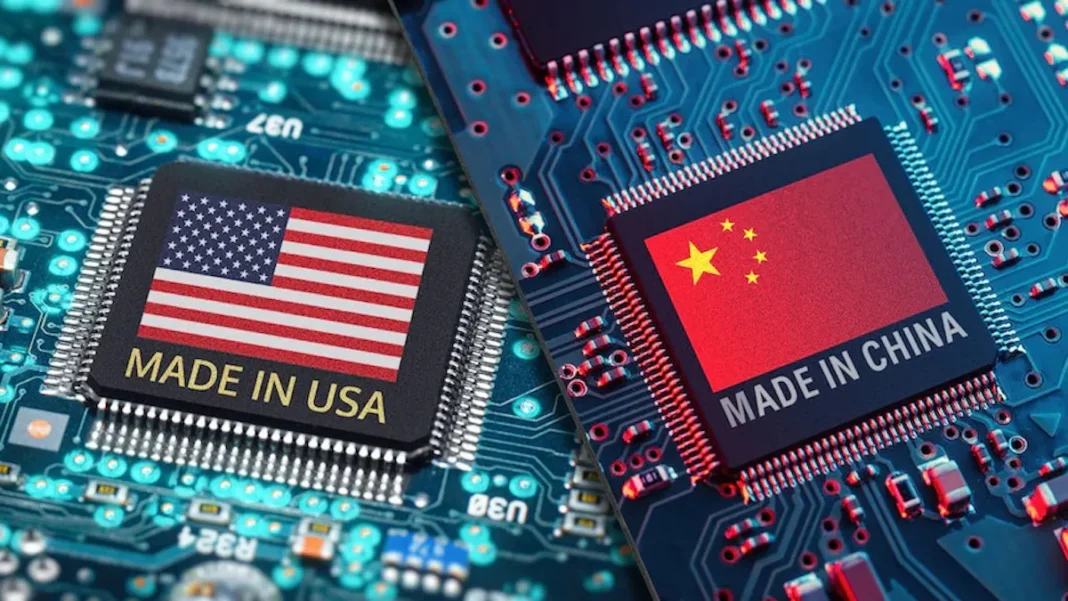Beijing, China, August 11: In a strategic move reflecting the escalating ‘chip war,’ China has recently imposed strict controls on the export of two important metals, germanium and gallium, which are crucial for making semiconductors and electronics.
Earlier, a major manufacturer of chip-making machinery, the Netherlands, in coordination with the United States, imposed fresh restrictions on the export of advanced chip-production equipment created by ASML to Beijing.
The Chip War
According to reports from the Financial Times, China’s Ministry of Commerce and Administration of Customs stated that these export restrictions on germanium and gallium are necessary “to protect national security and interests”. These measures will require exporters to obtain permits from the ministry started this month.
The ongoing technological conflict between the Western countries led by the United States and China centers around semiconductors. These tiny but vital chips are also called a ‘new oil,’ as they are found in nearly all electronic devices.
The struggle for control over semiconductor production and supply networks has led to increased tensions between these two global powers.
The United States is focused on limiting semiconductor supply to China due to concerns about China’s technological advancements.
Collaborative efforts with Japan and the Netherlands have led to tighter controls on exporting high-tech machinery to China. Additionally, the US is investing heavily in domestic semiconductor manufacturing through initiatives like the CHIPS and Science Act of 2022.
China has heavily invested in building its semiconductor manufacturing capabilities, while the United States has taken various measures to hinder China’s ambitions. This ‘Chip War’ is influenced by disruptions caused by the COVID-19 pandemic, increasing conflicts over Taiwan, and geopolitical issues in Ukraine.
These actions have resulted in significant changes in global geopolitics.
What are Semiconductors?
Semiconductors, also known as microchips or integrated circuits, are primarily made from silicon and contain millions or billions of tiny transistors, which act as miniature electrical switches.
These switches turn on and off to process various types of data like images, radio waves, and sounds. They are essential in everything from household appliances to high-end electronics and defense systems.
The importance of semiconductors became more evident during the COVID-19 pandemic when lockdowns disrupted the chip industry, causing a shortage in supply and demand. Remote work and increased demand for laptops highlighted the significance of microchips.
Incidents like a fire at a Japanese chip-manufacturing facility worsened the situation and strained US-China relations due to trade and technological disputes.
Taiwan Factor
This crisis also revealed the world’s dependence on Taiwan, a major player in microchip manufacturing. Over 60% of global semiconductors come from Taiwan, with more than 90% of advanced chips produced there. In contrast, the US and Europe contribute around 12% and 9% respectively.
Taiwan’s rise as a semiconductor powerhouse emerged when competition from East Asian rivals prompted the US to move manufacturing to Taiwan and South Korea.
Taiwan’s Semiconductor Manufacturing Company (TSMC), founded in 1987 by Morris Chang, now holds 55% of the global contract chip fabrication market. TSMC’s decision to focus on chip production, not design, has made it a reliable partner for chip designers worldwide.
Meanwhile, Taiwan faces uncertainty. Taiwan’s territorial dispute with China adds complexity, as China considers Taiwan part of its territory.
President Tsai Ing-wen’s “New Southbound Policy” aims to diversify trade relationships and decrease the dependency on China, but China remains a significant trading partner.
A conflict over Taiwan could have serious global consequences, rivaling the Russia-Ukraine conflict.
Despite China’s restrictions on germanium and gallium exports, experts believe the immediate impact might be limited due to alternative metal sources. However, this move indicates China’s ability to respond, potentially escalating the ‘chip war’ with trade restrictions.
As the race for semiconductor dominance continues, the global tech landscape braces for further disruptions and geopolitical changes.
The semiconductor, once an unobtrusive supporter of modern life, now plays a pivotal role in the complex geopolitical competition between superpowers.






